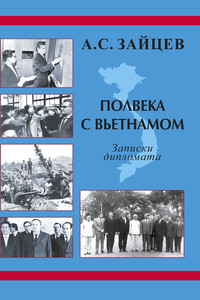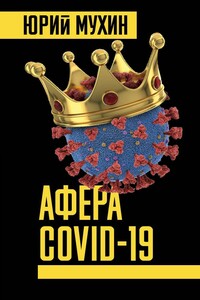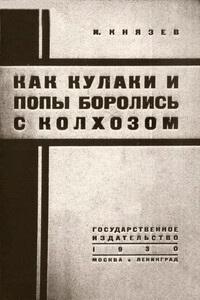The Boy Scouts In Russia - [14]
Here there was a trace of dampness, but nothing like what might have been expected in what was really a tunnel. Fred had to admire the excellence of the construction work. The descent, as he knew from what he had seen outside, must really be very sharp. But it was managed here with turns and zigzags so that the grade was never very sharp.
Fred became suddenly conscious of a change in the air.
"I must be near the opening," he thought.
A couple of minutes proved that he was right. He now remembered that Boris had not had time to tell him how the door or gate was operated. But he decided not to go back at once, but to try to discover the secret for himself. It had occurred to him that it was more than probable that a sentry or two might be left in the house, and he had no mind to stay in the passageway, helpless and useless, if Vladimir found it impossible to let him out at once.
At the end of the passage he found a solid, seamless door. He decided at once it must work on an axis of some sort and that it must be set in motion by pressing a spring. And so, steadily and systematically, he searched the whole door, until he struck the right spot at last. As the door moved, he marked the spot with a tiny pencil mark. It swung open-and he looked into the eyes of a startled German soldier, his mouth wide open! CHAPTER VII
It would be hard to say which was more surprised-Fred or the soldier. For just a moment they stood, both of them, perfectly still, staring at one another with fallen jaws. And then Fred acted by pure instinct, and without the semblance of a plan in his mind. He had played football in school and on the team of his scout troop in America. And now he dived for the astonished German's legs and brought him down with a flying tackle. The heavy gun flew out of the soldier's hands, and, fortunately for Fred, he fell so that his head struck the ground heavily. He was stunned and, for the moment at least, safe and out of commission.
There was time, therefore, for Fred to see how the ground lay. He found that he was in a slight hollow, sandy in the bottom, where he stood and the soldier lay. He imagined that at certain times this hollow might be filled with water, for the sand had that appearance, and, moreover, there was a gully, evidently washed out by water, leading down into the pit.
"Wonder how long he's good for?" speculated Fred, looking at the soldier. "A few minutes, anyhow. He got quite a bump!"
He satisfied himself in a moment that the soldier was not badly hurt. He was a ridiculous figure as he lay there sprawled out. His breathing was heavy; it sounded almost like heavy snoring. He was very young, scarcely more than a boy himself. His uniform was entirely new, as was his equipment. He was very slight too, and his face was typical of a certain sort of German. He looked, Fred thought, like a bird. It was a queer idea, and he laughed as it came to him, but it did describe this German absolutely.
"I'll risk it," Fred decided. He hesitated about the door. Perhaps he ought to close it. But if he did, he couldn't open it again from this side for that was a secret he hadn't learned. And, after all, the only danger was that the soldier might come to his senses and go in-and if he did that, Fred could follow him. So taking the rifle, he crawled along the gully the rain had washed out, moving very cautiously. As he neared the top, he lifted his head and saw, not more than fifty yards away, a grey stone house, simple and unassuming. A flag pole had been put up in front of this house, and a German flag drooped from it. Soldiers were all about the place, and two automobiles stood before the door. Motorcycles were lying on the ground. While Fred watched, two men rode up on the snorting, crackling little machines and hurried into the house.
This was undoubtedly the parsonage, now being used as the headquarters of Colonel Goldapp. Fred's heart sank as he surveyed the place. It seemed to him that there wasn't much chance that he could rescue Boris. There were too many Germans about. Even though there was no reason for the staff to anticipate an attack, he could guess that the place would be well guarded. And yet he was here because he hoped that he would be able, after seeing the parsonage, to devise some plan of getting Boris away.
However, that was something to be attempted later, if at all. His chief concern now was for the soldier he had thrown. And now he made his way back, and found to his dismay that the man was beginning to recover his senses. As Fred came back he stretched, yawned, and sat up, with the most ludicrous mixture of fright and wonder in his eyes. Fred had his gun, and at the sight of that the soldier spoke indignantly.
"Give me back my gun!" he said, testily. "It is against the rules for anyone to touch my gun. If you let the corporal catch you with that, there'll be trouble. I promise you!"
Fred had hard work to control his features. He wondered if the man was really a little simple-minded, or if the effects of his fall still confused him. He finally decided that both theories were right. For a moment he hesitated, wondering what to do. He wanted to get back into the passageway, and he did not want the German to see him doing it. As he thought, he studied the entrance attentively. And he was startled suddenly to find that he could not see it! Had something happened? Had the door closed automatically? If that were so, he was in a nice fix, and he would soon join Boris as a prisoner.

В основу книги положены личные впечатления автора о командировках во Вьетнам в период 1961–2011 гг. Вошедшие в сборник очерки основаны на малоизвестном широкому читателю фактическом материале, это своеобразный дневник, живое свидетельство непосредственного участника и очевидца многих важных событий в истории отношений наших двух стран. «Эта книга, – пишет автор, – скромная дань любви и уважения героическому, трудолюбивому и талантливому народу Вьетнама, с которым судьба связала меня на протяжении более полувека».В формате PDF A4 сохранен издательский макет.

«Лолита» Владимира Набокова не просто произвела фурор среди современников писателя — она и по сей день остается одним из самых популярных романов в мире. Однако мало кто знает, что сюжет книги во многом вдохновлен историей похищения Салли Хорнер, одиннадцатилетней девочки, о которой Набоков узнал из газет. Сара Вайнман, журналистка и редактор сайта CrimeReads, впервые с 1950-к голов проливает свет на трагическую судьбу Хорнер и описывает обстоятельства, в которых был создан нашумевший роман Набокова.

В книге рассказывается история главного героя, который сталкивается с различными проблемами и препятствиями на протяжении всего своего путешествия. По пути он встречает множество второстепенных персонажей, которые играют важные роли в истории. Благодаря опыту главного героя книга исследует такие темы, как любовь, потеря, надежда и стойкость. По мере того, как главный герой преодолевает свои трудности, он усваивает ценные уроки жизни и растет как личность.

Тайна перевала Дятлова раскрыта. Хамар-Дабан, убийство Зои Федоровой, Бермудский треугольник, смерти Есенина и Маяковского, загадка Ванги, самое жуткое и загадочное преступление в мире. В этой книге вы найдете ответы на тайны, будоражащие воображение людей всего мира.

«Доктор, когда закончится эпидемия коронавируса? — Не знаю, я не интересуюсь политикой». Этот анекдот Юрий Мухин поставил эпиграфом к своей книге. В ней рассказывается о «страшном вирусе» COVID-19, карантине, действиях властей во время «эпидемии». Что на самом деле происходит в мире? Почему коронавирус, менее опасный, чем сезонный грипп, объявлен главной угрозой для человечества? Отчего принимаются беспрецедентные, нарушающие законы меры для борьбы с COVID-19? Наконец, почему сами люди покорно соглашаются на неслыханное ущемление их прав? В книге Ю.
